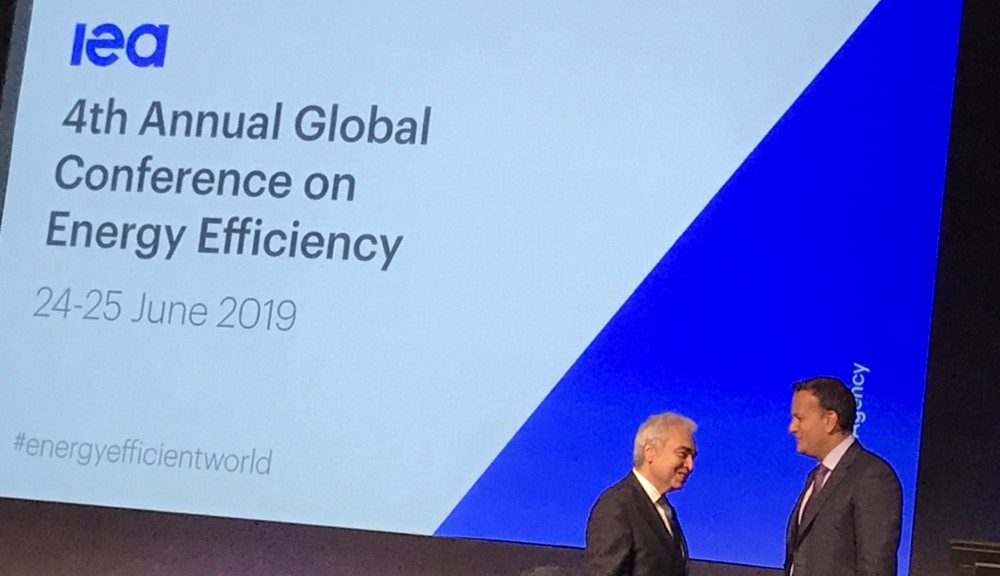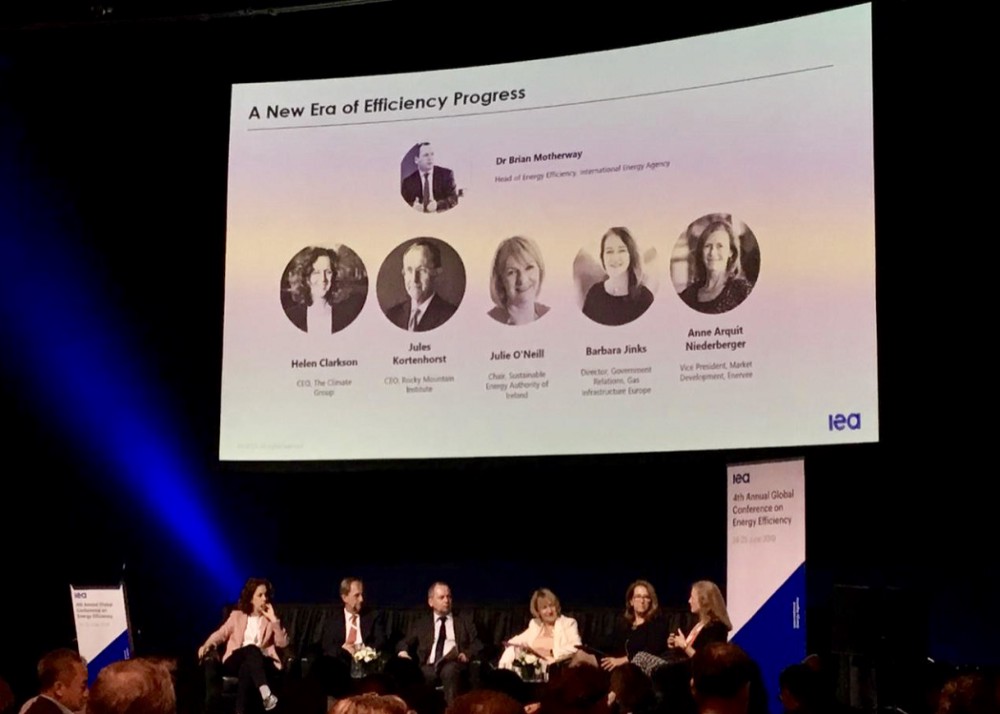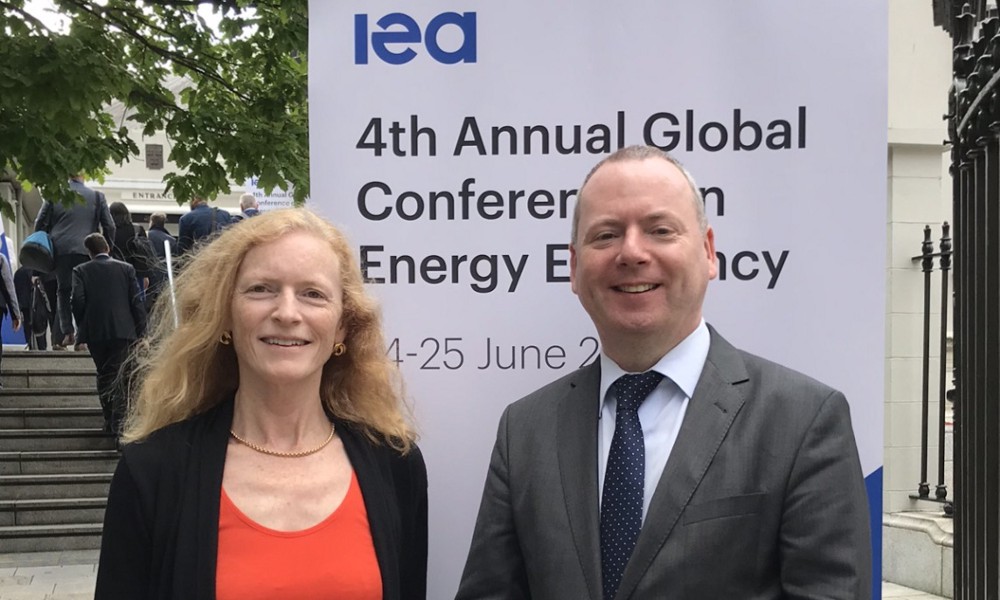The International Energy Agency’s largest Global Conference on Energy Efficiency, held in Dublin this week, brought together 400 government ministers, CEOs and energy experts from 50 countries to discuss critical topics like financing, policy innovation and digitalization.

At the start of the two-day event, Dr. Fatih Birol, the IEA’s Executive Director, and Prime Minister Leo Varadkar of Ireland launched a new Global Commission for Urgent Action on Energy Efficiency of which Mr Varadkar will be the honorary chairperson.
In his opening remarks, the Prime Minister said: “ A relentless focus on improving energy efficiency needs to be central to our response to climate change. We must co-operate and collaborate with people around the world, share our learning, and find a more sustainable path to the future.”
Emphasizing the importance of behavioral strategies, Enervee’s VP of Market Development, Dr. Anne Arquit Niederberger, highlighted the progress being made on eliminating longstanding barriers preventing private investment into energy efficient technologies.

“Reigning in greenhouse gas emissions is an urgent task. We can no longer tolerate the perpetual gap between cost-effective and market potential.
And we no longer have to.
People think it’s important to buy energy efficient products and clean vehicles — a growing body of behavioral research and empirical data show that choice engine platforms featuring a zero to 100 energy efficiency index empower them make better choices, without incentives.”
With new data, technology and behavioral insights, we can eliminate persistent and pervasive market and behavioral barriers that prevent private investment into energy efficient technologies.
She also pointed out the importance of energy policymakers and regulators joining forces on energy efficiency. In response to an audience question, Dr. Arquit Niederberger acknowledged that making markets work better for consumers serves a public purpose, yet utilities are ideally placed to execute on this strategy, given the contractual relationship and trusted advisor status they enjoy with their customers.

“This is why public-private dialog is so important. The private sector can deliver societal benefits when the right incentive structures are in place. Performance-based regulation is a promising approach that preserves flexibility to innovate, while guiding companies to achieve the results that policymakers are looking for.”
During the summit, Dr. Arquit Niederberger also participated in a meeting of the IEA’s Energy Efficiency Industry Advisory Board, which provides private sector input to inform the IEA’s advice to policymakers.
IEA Press Release
Prime Minister Leo Varadkar Speech

